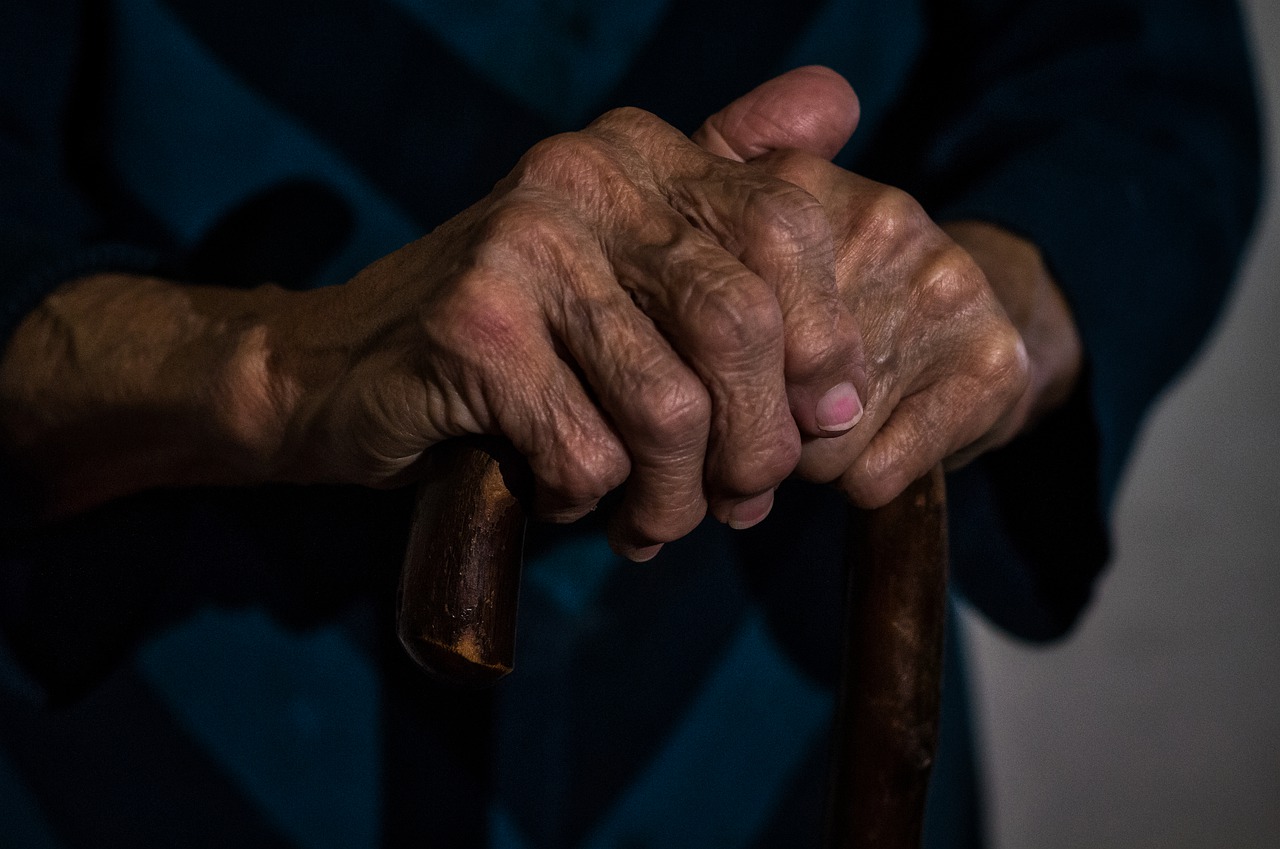THIS was a great course. Anyone involved with guardianship of a female ward, young or old should take this. The National Guardianship Association offers a plethora of really helpful coursework for professional fiduciaries and other parties that operate as guardians. I highly recommend this segment. It is truly an eye-opener about the challenges and inequities that confront women, and more specifically minority women, with helpful direction on finding resources to help them. Take it! It’s quick and thorough.
Charitable Love on Thanksgiving
There is no better time than Thanksgiving to remember that reaching out to those less fortunate is a blessing, . . . a blessing to both the receiver and the giver for there is no more pure expression of love than beneficent giving. It doesn’t have to be monetary or tangible, of oneself can be the greatest gift. A wise man believes, “give and make haste of it because the last moment may be upon YOU without you knowing so. Those that give food to the hungry, clothing to the unclothed, mentorship teaching to the less informed are numbered among the blessed.”
As we enter the holiday season it is right and a duty to think of those less fortunate than oneself. Charitable acts live LONG after the giver of charity is gone from this world.
Bien Agradecido, Querido Dios
Fulton Oursler, un pastor algo reconocido pasó la mayor parte de su vida recordando a sus feligreses la importancia del “agradecimiento” personal para con el Gran Arquitecto del universo. Cuenta la historia de “Anna”, la criada negra que le cuidó como niño y le proporcionó la lección más importante de su vida. Así contó, . . .
Un día cuando tenía siete u ocho año me encontré en la cocina con Anna, termiando la preparación de una humilde cena. Al sentarse a la mesa dijo ella, “Bien agradecida, mi querido Dios por mis viandas.” A tal cual respodió el niño, “¿Anna, qué es una “vianda”?” Ella explicó que vianda era lo que tenía para comer y beber. El niño, siendo niño dijo, “Pero, usted tendrá de qué comer y beber si a Dios le diera las gracias o no.” Anna, vió la oportunidad para enseñar algo importante al joven.
Dijo Anna, “Usted tiene la razón pero todo sabe mil veces mejor cuando usted es una persona agradecida.” Procedió a contar el sermón de un pastor que le había enseñado a Anna un juego de “agradecimiento”. Se trató de buscar siempre razones para ser un alma agradecido. Contó ella, “Un día fui al mercado para comprar pan para la casa y al pasar por el lado de una tienda de ropa exclusiva noté qué tan lindas eran las blusas.” Respondió el niño, “Pero Anna, usted no tiene recurso para comprar cosas así de caras.” Anna le explicó, “Yo lo sé pero en mi mente, juego muñecas con esas blusas. Sueño ver a su mamá y su hermana vestidas en cosas de semejante belleza. En esos momentos le digo, “Muy agradecida, mi querido Dios, por jugar lindo en la mente de esta vieja.” Continuó Anna, “Como el otro día al volver de compras una fuerte lluvia me cayó encima. Había escuchado de las duchas de los baños modernos, y hasta les he visto a usted y su hermana en la suya. Pensé, ‘ahora tengo mi PROPIA ducha’ y en ese momento le dije, “Muy agradecida, querido Dios, porque usted me regala un pedazo del cielo cada día.”
Pasaron los años, el niño llegó a ser hombre y la vejez llegó a Anna. Le llamaron un día para decirle que Anna estuvo a punto de la muerte y el joven volvió a su ciudad natal para estar con ella en los últimos momentos. Le vió a ella en cama, sufriendo de dolor insoportable y el joven se preguntó, “¿Me pregunto de qué tenía Anna en aquel momento para estar “agradecida”.
Anna abrió los ojos por última vez, viendo todos sus seres queridos, y los muchachos que ella había criado a todo su alrededor. Cruzó las manos sobre su pecho, sonrió y dijo, “Muy agradecida, mi querido Dios por tan buenos amigos y familia.”
Ode to the Fallen 9/11
Brian Sweeney, in a voicemail for his wife from United Flight 175, which crashed into the World Trade Center said, “Jules, this is Brian. Listen, I’m on an airplane that’s been hijacked. If things don’t go well, and it’s not looking good, I just want you to know I absolutely love you. I want you to do good, go have good times. Same to my parents and everybody, and I just totally love you, and I’ll see you when you get there,” We remember you. Thank you for being all of us on that day. To you, . . .
Heartbreaking to be perfectly healthy and know that your time has come, . . .
the regrets, . . .
unsaid words, . . .
unhugged family, . . .
unmended fences, then, . . .
Will it hurt? Will my kids be ok? Did my life matter at all?
Your bravery, your essentially American way of unifying with your fellows to do the things that must be done, regardless of the cost, . . . we will remember you, always. “We’ll see you when we get there.”
Posible Avanzar, . . .
“Sólo es posible avanzar cuando se mira lejos. Sólo cabe progresar cuando se piensa en grande.” ~José Ortega y Gasset
Vacunarse Es un Acto de Amor
Vacunarse contra el COVID-19 es apropiado, un muestra de bondad hacía el prójimo y un acto de amor. Estamos todos en una guerra colectiva, una guerra que ha ya costado cientos de miles de vidas. Vacunarse es un acto de amor y de solidaridad, cosa la cual nos protege y más importante cuida a los demás. Puede que como joven o persona súper saludable, sobreviviría un contagio pero su usted es portador del virus y contagia a otra persona? Qué tal si esa persona tiene las inmunidades naturales comprometidas, . . . qué tal si esa persona es un ser querido? De verdad desea cargar con la muerte de un familiar en la conciencia?
Según el destacado grupo virólogo de la Mayo Clinic al tratarse de la inmunidad colectiva o “inmunidad de rebaño” en inglés, “La inmunidad colectiva ocurre cuando una gran parte de la comunidad se vuelve inmune a una enfermedad, haciendo que sea poco probable la trasmisión de persona a persona. Como resultado, toda la comunidad tiene protección — no solo los que sean inmunes. Una vacuna contra el virus que causa la COVID-19 es un acercamiento ideal para lograr la inmunidad colectiva. Las vacunas crean inmunidad sin causar la enfermedad ni resultar en complicaciones. La inmunidad colectiva hace posible proteger a la población de una enfermedad, incluyendo a aquellos que no pueden vacunarse, como los recién nacidos y los que tienen el sistema inmunitario comprometido. Usando el concepto de la inmunidad colectiva, las vacunas han controlado con éxito enfermedades contagiosas mortales como la viruela, la polio, la difteria, la rubéola, y muchas otras.”
No hay excusa para evitar la vacuna. Pfizer, Moderna, AstraZeneca, . . . TODAS son excelentes. Efectos secundarios nefastas? Mierda es. Según la CDC de los EEUU el día 6 de mayo (2021), se ha repartido más que doscientos cincuenta MILLONES de dosis desde que estalló la pandemia. Hasta ahora no hay muertos saliendo de las tumbas, casos de gente dando luz a bebés con tres ojos ni “control cerebral por el chip 5G de Bill Gates”. Hágalo ya, para usted, para sus seres queridos, para su comunidad.
Texas Needs Help Desperately, Winter 2021 Crisis
The State of Texas is near and dear to my heart. This week has seen the arrival of unprecedented suffering of a broad population of Texas. Already overburdened by the effects of the COVID-19 pandemic, the winter inclement weather has left tens of thousands of families without power, running water and many with homes ruined by bursted water lines. There are MANY ways to help. I urge ALL that are economically able to contribute to the relief of our fellow citizens. As most things recently the current disaster has been politicized. It is frankly irrelevant who is to blame. There are people that point fingers, and there are people the fix problems. I humbly and earnestly plead with you to help. The following are some links to excellent ways to help your fellow citizens.
FOOD BANKS + SNAP BENEFITS
- Feeding Texas Network – Search for your local food bank using your zip code.
- Rio Grande Valley Texas Food Bank
- Central Texas Food Bank
- North Texas Food Bank
- Houston Food Bank
- East Texas Food Bank
WARMING STATIONS
- List of warming centers across Texas
- Up-to-date list and details of warming centers in all Texas regions by @dosomething
- San Antonio: Henry B. Gonzalez Convention Center opened as a warming center. Residents in need of transportation can call 311 for VIA Metro Transport (as of 2/16).
- Fort Worth: Sign up for TEXT alerts for available resources.
North Texas Warming Centers
Central Texas Warming Centers
Montgomery County Warming Centers
“We are taught that Faith, Hope, and Charity are our direct link to the Celestial Father above through that “theological ladder” which Jacob, in his vision saw reaching from earth to heaven, the greatest rung of which is Charity. Our Faith may be lost in sight, Hope ends in fruition, but Charity extends beyond the grave through the boundless realms of eternity.”
North Carolina and Cannabis Legalization
I read with interest a recent report in the News & Observer by Mr. Doran about the Elon University marijuana legalization poll. Legalization of cannabis and cannabinoid products should be a priority for the North Carolina General Assembly among its manifold fiscal, social and justice reform legislative efforts.
Prosecution of marijuana and related offenses has disproportionately affected minorities and the poor. Serious convictions for non-violent offenses that nullify a defendant’s civil rights and effectively disqualify him or her from professional licenses and job opportunities offer no benefit to our community. Statutory oddities such as the possession of rolling paper which carries a more severe penalty than that of possession of marijuana itself are evidence of stupid law making at best, and discrimination at worst. In what system would a prosecutor allow a guilty plea to a weapon possession charge and dismiss the accompanying homicide? Ridiculous. Only sixteen states still enforce a strict prohibition of cannabis, North Carolina among them. A few of these are currently considering decriminalization and/or legalization. From a criminal justice perspective, we are dead wrong on our failure to open a serious legislative debate on cannabis.
Legal use of cannabis for medical purposes should raise no argument whatsoever. Other than the prejudicial effects of inhaling anything that produces smoke, there is no medical evidence that cannabis harms the human body any more than the use or abuse of any substance. In fact, there is a body of evidence that the positive effects of prescribed cannabis to reduce pain and increase appetite far outweigh the negatives, allowing patients to enjoy an improved quality of life without the risk of the dangerous spiral of opiate addiction. The prohibition of cannabis use by individuals with terminal illnesses is absolutely indefensible.
From a social impact perspective, opponents of marijuana legalization often recycle the tired argument that it is a “gateway drug”, that by allowing adult use somehow cannabis consumers will turn into crack, heroin or methamphetamine addicts. Again, evidence does not support that argument. Like any reasonable adult, I am not enthusiastic about my airline pilot, brain surgeon or my children’s school bus driver smoking marijuana then immediately engaging in their occupations but we don’t allow them to do so with alcohol or prescription drugs either. There is an equivalency here. Likewise, justifications of prohibition based on the supposition that marijuana users will engage in actions under the influence that they otherwise would not, or somehow evolve into dastardly delinquents committing crimes to support their habit fall flat.
Fiscally, legalization is a responsible action. I can speak with some authority. Since legalization of cannabis in California under Proposition 215 over a decade ago to date, I have affixed my signature to approximately eight thousand surety bonds required by over a dozen state regulators that guarantee the conduct of those cannabis licensees. Those licensees have become significant revenue generators. In 2019, cannabis sales generated a tax revenue to the State of California in the amount of $629.3 million. Over the lifetime of the program the revenue number is $1.03 billion. Washington as a comparison by population similar to that of North Carolina enjoyed a 2019 tax collection of $395.5 million, $1.33 billion over the life of its cannabis program. The revenue is of course but part of the fiscal picture, as the end of simple possession and paraphernalia prosecutions have saved criminal justice systems countless millions of dollars.
I don’t use cannabis. I’m just not interested but neither am I interested in smoking cigarettes. My choice doesn’t mean that responsible adults should not make their own informed decisions about cannabis use. Legalize it for adults, tax it and penalize irresponsible and illegal cultivation and distribution. Not doing so after consideration of the successful government-regulated cannabis experiments in three-quarters of U.S. states puts North Carolina on the wrong side of history.
~Constantin Poindexter, CEO Surety One, Inc.
MLK Day, a Moment for Thankfulness
Today is a special occasion, special because of a man and his universal message of freedom, hope and faith in humankind. This day marks more than the birth date of a man that stood for equal rights for black Americans. It honors the themes of Dr. King’s timeless call for equality among men, a call for America to live up to those ideals expressed by the founding fathers in the Declaration of Independence and a method to reach that goal without violence.
Dr. King believed. Dr. King had faith and reminded us of the fatherhood of God, and the universal brotherhood of man. He declared that a truly free and just society judges a man by the “content of his character rather than the color of his skin.” Though white supremacists, law enforcement and even the U.S. intelligence community conspired to silence his voice, he persevered. Against all odds, he kept walking and preaching. The fear that must have pervaded folks that joined him in his long walks across the southern part of America, the death and injury inflicted upon him and his followers, the resistance of certain members of white America are and have always been a national disgrace.
I have a dream. I have a dream that the hate will end, that fairness and goodwill between ALL races and ethnicities of America will inevitably prevail. Thank you, Dr. King.
La Caridad es el Amor Manifestado
El amor: def. nombre masculino; Sentimiento de vivo afecto e inclinación hacia una persona o cosa a la que se le desea todo lo bueno. “el amor al prójimo; abrazó al bebé con gran amor; nunca ocultó su amor a la patria; el amor de la gloria lo llevó hasta el heroísmo”
Sentimiento de intensa atracción emocional y sexual hacia una persona con la que se desea compartir una vida en común.
“amor platónico; me gustan las canciones de amor; no puedo expresar con palabras el amor que siento por ti; le escribió una carta de amor”
La definición común, todos la sabemos, ¿pero es el amor solamente un sentimiento? Por supuesto que no. Es una acción, un comportamiento. Someto para la consideración las palabras sabias del R.H. Carlos Ayón Calderón, “la Caridad, desde es la más importante de las virtudes teologales y sobre todas las virtudes cardinales que, expresa el Amor Verdadero cuando el hombre ama a su prójimo por el amor a Dios. La Caridad (y la Misericordia, su hermana) tienen la aprobación del cielo y la tierra, que ambas bendicen tanto al que da como a aquel que la recibe.” En esto, de acuerdo estoy y recomiendo particularmente la ampliación del sentido de la palabra “Amor”. La definición común no le hace justicia a nadie, perdiendo en visto lo que quiere decir nuestro creador.
Que por medio de la escalera de Jacobo alcanzamos la salvación. Los peldaños de la escalera son fé, esperanza y caridad, el último siendo el más importante, la practica de la cual enriquece, como dijo Ayón, el/la practicate tanto como el/la recipiente.









